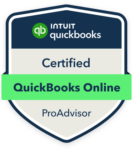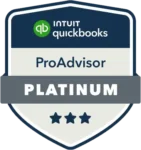Imagine waking up, grabbing your coffee, and starting your workday from the comfort of your home. Sounds like a dream, right? Well, this is the reality for many today, thanks to the rise of remote work. What was once a luxury is now necessary, with businesses rapidly shifting their online operations. But what about your finances?
That’s where virtual accounting & bookkeeping services come into play. These services ensure your financial records are in perfect order, even when your team is scattered across different locations. In this blog, we’ll explore how virtual accounting can support your business growth and why it’s the solution you’ve been searching for.
Keep reading to find out more!
The Evolution of Virtual Accounting & Bookkeeping Services

Have you ever wondered how accounting has transformed over the years? The journey has been remarkable, from the days of paper ledgers to today’s cloud-based platforms.
Once confined to physical offices and piles of paperwork, traditional accounting methods have evolved into virtual accounting, where everything is done online, offering businesses flexibility and efficiency.
But how did we get here, and why is virtual accounting becoming the go-to solution for businesses today?
Historical Context
In the past, accounting was a time-consuming process that relied heavily on physical documents and in-person meetings. Accountants would spend hours sorting through stacks of paper, manually entering data into ledgers, and reconciling accounts.
This traditional approach, while effective, was limited by location and time. Businesses had to rely on in-house accountants or local firms, accessing specialized expertise or scale operations challenging.
The introduction of computers and accounting software in the late 20th century marked a significant shift. Technology enabled accountants to automate many routine tasks, reduce errors, and streamline processes. However, the real game-changer came with the advent of cloud computing. Virtual accounting emerged, allowing businesses to manage their finances from anywhere, access real-time data, and collaborate with accountants online.
Current Trends in Virtual Accounting
Today, virtual accounting is not just a trend but a necessity for many businesses. According to a study by Accounting Today, 58% of small businesses now prefer cloud-based accounting over traditional methods. This shift is driven by the need for flexibility, cost savings, and the ability to access financial data anytime, anywhere. Virtual accounting solutions offer enhanced security features, making them a safer option for businesses concerned about data breaches.
Small and medium-sized businesses (SMBs) are responsible for adopting virtual accounting services. The SMB Group reported that nearly 78% of these businesses have adopted or planned to adopt cloud-based accounting solutions. This adoption is not just about staying current with technology; it’s about leveraging its benefits, such as scalability, improved financial management, and access to expert advice without needing in-house staff.
As businesses continue to navigate the challenges of a digital world, virtual accounting, and bookkeeping services provide a robust solution for maintaining financial health while embracing the flexibility of remote work.
Benefits of Virtual Accounting & Bookkeeping Services

Have you ever considered how much time and money could be saved by switching to virtual accounting? Virtual accounting & bookkeeping services are becoming the go-to solution as businesses seek innovative ways to manage their finances.
But what makes them so beneficial? Let’s explore the key advantages driving more companies to adopt these services.
1. Cost-Effectiveness
One of the most significant benefits of virtual accounting is its cost-effectiveness. Traditional accounting requires businesses to invest in office space, full-time staff, and expensive software licenses. With virtual accounting, these overhead costs are significantly reduced.
Reduced Overhead Costs:
- There is no need for physical office space for accounting staff
- Lower costs for software as most virtual services include cloud-based tools
- Pay only for the services you need, with no long-term contracts
Flexible Pricing Models & Scalable Services:
- Virtual accounting services often offer tiered pricing, allowing businesses to choose a package that fits their needs and budget
- Easily scalable services, meaning businesses can start with essential services and add more as they grow
2. Accessibility & Flexibility
Virtual accounting offers unparalleled accessibility and flexibility, which is crucial in today’s fast-paced business world.
Access to Financial Data Anytime, Anywhere:
- According to a survey by Intuit, 65% of small business owners said that remote access to their financial data was a key reason for choosing virtual accounting services
- Businesses can access their financial records from any device with an internet connection, allowing for real-time decision-making and collaboration
Flexibility in Working Hours:
- Virtual accounting services allow businesses and accountants to work at their own pace without being tied to traditional office hours
- This flexibility is particularly beneficial for small businesses that may not operate within standard business hours
3. Enhanced Collaboration Tools
virtual accounting & bookkeeping services leverage cloud-based tools that make collaboration more accessible and practical.
Use of Cloud-Based Tools for Real-Time Collaboration:
- Cloud-based accounting software allows multiple users to access and update financial records simultaneously, ensuring everyone is on the same page
- Real-time updates mean no more waiting for end-of-month reports; decisions can be made based on the most current data
Integration with Other Business Management Software:
- Many virtual accounting tools seamlessly integrate with other business software like CRM systems, project management tools, and payroll services
- This integration simplifies workflows, reduces errors, and ensures that all aspects of the business are aligned
Key Features of Remote Accounting Services
Have you ever wondered what makes remote accounting services so effective and reliable? The answer lies in these services’ powerful tools and features, designed to make financial management more accessible and secure.
Let’s dive into some key features that set remote accounting apart from traditional methods.
1. Cloud-Based Accounting Software
One of the cornerstones of remote accounting services is cloud-based accounting software. Tools like QuickBooks Online, Xero, and FreshBooks have become industry standards, allowing businesses to manage their finances from any location.
Overview of Popular Tools:
- QuickBooks Online: Known for its user-friendly interface and wide range of features, QuickBooks Online is popular among small to medium-sized businesses for its robust reporting and invoicing capabilities.
- Xero: Xero offers a more global perspective, with features like multi-currency support, which is ideal for businesses with international clients.
- FreshBooks: FreshBooks is favored by freelancers and small business owners for its simplicity and efficient time-tracking features.
Benefits of Cloud-Based Accounting:
- Data Security: Cloud-based tools offer high levels of encryption and regular backups, ensuring your financial data is protected from breaches and loss.
- Ease of Use: These platforms are designed to be intuitive, requiring minimal training to get started. They also offer automated features that reduce manual data entry and errors.
- Accessibility: You can access your financial data from any device with an internet connection, allowing real-time updates and collaboration with your accounting team.
2. Data Security & Compliance
Data security and compliance are paramount in the digital world, especially when dealing with sensitive financial information.
Importance of Secure Data Handling:
- Remote accounting services prioritize data security through encryption, secure servers, and regular security updates.
- Multi-factor authentication and user access controls ensure that only authorized personnel can access your financial data.
Compliance with Regulatory Standards:
- These services are built to comply with various regulatory standards, such as GDPR for data protection in the EU or SOC 2 for service organizations.
- Regular audits and updates ensure that the software complies with the latest regulations, giving businesses peace of mind.
3. Customization & Personalization
One of the most significant advantages of remote accounting services is the ability to customize and personalize the experience to fit your business needs.
Tailoring Services to Meet Unique Business Needs:
- Whether you need basic bookkeeping or advanced financial analysis, remote accounting services can be tailored to meet your needs.
- Businesses can choose the features and services that align with their goals, ensuring they get the most value from the service.
Personalization in Financial Reporting:
- Customizable financial reports allow businesses to focus on the metrics that matter most: cash flow, profit margins, or expense tracking.
- Advisory services can also be personalized, offering expert guidance based on your business’s financial health and future goals.
How Does Virtual Accounting Support Business Growth?

Have you ever wondered how virtual accounting & bookkeeping services can help your business grow? It’s more than just crunching numbers—creating a foundation for success.
1. Improved Financial Management
With virtual accounting, businesses gain real-time insights into their financial health. This means you can make smarter decisions faster, knowing exactly where your money is going. Streamlined bookkeeping processes accessible over time, allowing you to focus on what matters—growing your business.
2. Scalability and Support
As your business expands, virtual accounting grows with you. There’s no need to hire additional in-house staff or invest in new infrastructure. You gain access to a broader talent pool of experienced accountants and bookkeepers who can handle your needs as they evolve.
3. Strategic Financial Planning
Virtual CFO services offer strategic financial planning, helping you prepare for challenges and seize new opportunities. These services guide long-term planning, ensuring your business is always on the right track for growth.
Overcoming Challenges in Remote Accounting
Have you ever wondered how businesses successfully navigate the challenges of remote accounting? While the benefits are clear, there are hurdles to overcome, such as trust, communication, technology adoption, and data privacy.
Let’s explore how to address these challenges effectively.
1. Building Trust & Communication
Trust and communication are key in a remote virtual accounting & bookkeeping services environment. Building trust starts with clear and consistent communication strategies.
For example, using video calls for regular check-ins can help maintain a personal connection, even when working remotely. According to a study by Buffer, 20% of remote workers feel isolated, so frequent communication helps alleviate this feeling.
Strategies for Effective Communication:
- Regular video meetings to discuss progress and address concerns
- Using collaborative tools like Slack or Microsoft Teams to keep everyone in the loop
- Setting clear expectations and deadlines to ensure accountability
Building Trust in a Remote Environment:
- Transparency is essential—sharing updates and being open about challenges fosters trust.
- Encouraging team members to share their insights and feedback builds a sense of ownership and trust.
2. Technology Adoption
Adopting new technology can be challenging, especially for those unfamiliar with cloud-based tools. However, the right approach can ease this transition.
Addressing the Learning Curve:
- According to a Deloitte survey, 67% of businesses reported a steep learning curve when transitioning to new technology. To mitigate this, providing training sessions and ongoing support is crucial.
- Start with user-friendly platforms like QuickBooks Online, designed to be intuitive and easy to learn.
Ensuring Smooth Technology Integration:
- Choose software that integrates seamlessly with your existing systems. This will reduce the risk of data loss and minimize disruption.
- Conducting a pilot program before full implementation can help identify potential issues and make necessary adjustments.
3. Data Privacy Concerns
Data privacy is a significant concern in remote accounting, but with the proper measures, it can be effectively managed.
Tackling Data Security Concerns:
Encrypted communication channels and secure cloud storage ensure the protection of sensitive financial data. For instance, a report by Cybersecurity Ventures predicts that cybercrime will cost the world $10.5 trillion annually by 2025, highlighting the importance of robust security measures.
Educating Clients on Data Protection:
Regularly educating clients about data protection practices, such as using strong passwords and enabling two-factor authentication, can significantly reduce the risk of breaches. Moreover, Sharing insights from reputable sources, such as the National Cyber Security Centre (NCSC), can help clients understand the importance of data security.
Case Studies & Success Stories
Virtual accounting & bookkeeping services have proven to be a game-changer for many small to medium-sized businesses. Take, for example, the case of a small e-commerce company that transitioned to virtual accounting and saw its profits increase by 20% within a year. Using cloud-based tools like Xero, they streamlined their financial processes, reduced errors, and saved countless hours of manual work.
Another success story is a consulting firm that adopted virtual CFO services. This move improved their cash flow management and provided strategic financial planning that helped them expand into new markets. As a result, their revenue grew by 30% in just two years.
These real-life examples highlight the tangible benefits of virtual accounting, showcasing how it can lead to significant growth and efficiency improvements for businesses.
Conclusion
Virtual accounting & bookkeeping services offer many benefits, from cost-effectiveness and flexibility to enhanced data security and strategic financial planning. As businesses continue to adapt to modern work environments, the role of virtual accounting in driving growth becomes even more critical. The trend toward remote work and virtual services is only expected to grow.
Now is the perfect time to explore virtual accounting & bookkeeping services solutions for your business. Ready to get started?
Visit LUCI Financial Solutions to learn more and schedule a consultation today.












